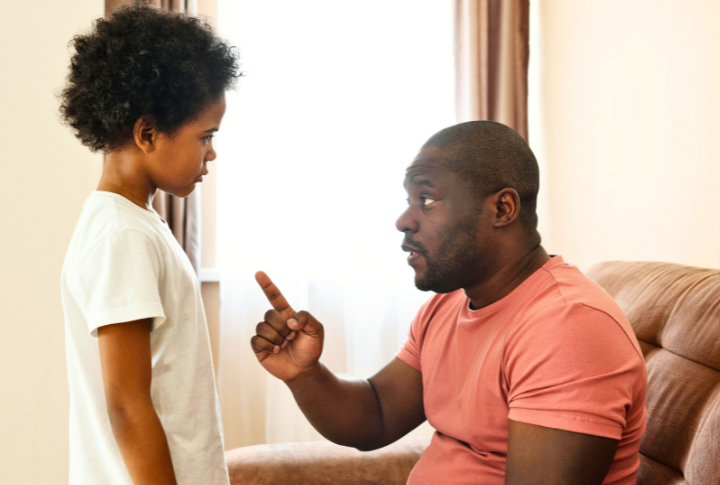
Parenting isn’t easy, and let’s be honest—sometimes kids test every ounce of patience. They’re messy and full of energy, and there are moments when you want a break. But no matter how frustrating things get, words have power. So, here are ten things you might want to say to your kids but definitely shouldn’t.
“Shut Up”

Yes, we all crave peace, but telling a child to shut up is harsh and dismissive. It shuts them down and makes them feel like their voice doesn’t matter. Kids are naturally curious, and while their nonstop chatter can be overwhelming, silencing them sends the wrong message about communication.
“You’re Going To Get Fat”

Food should never be a source of shame for kids. They’re growing, they’re hungry, and let’s be honest, sometimes they want that extra cookie because it looks good. Making them feel guilty about what they eat isn’t the answer. Focusing on balance helps them develop a healthy relationship with food.
“You Make Me Crazy”

It’s okay to feel like you’re losing your mind because kids have a way of pushing every single button, whether they’re asking “why” for the hundredth time or leaving Lego pieces on the floor. All of this can make parenting overwhelming. But saying this can make kids feel like a burden rather than just, well, kids being kids.
“I Never Should Have Had Kids”

We’ve all had those tough moments when parenting feels like too much. Maybe it’s the sleepless nights or the endless demands, but expressing regret like this can be damaging. Kids hear everything, and while it’s okay to feel overwhelmed, it’s important to remember how much they need us.
“Why Can’t You Be More Like Your Sibling?”

Comparisons can be damaging, even when they’re unintentional. Saying, “Why can’t you be more like your sibling?” can create unnecessary competition, resentment, and self-doubt. Every child has their strengths and struggles, and it’s essential to recognize their individuality. Encourage them to be the best version of themselves rather than someone else.
“Daddy/Mommy Is An Idiot”

Even if frustration levels are sky-high and your partner or ex just did the most annoying thing, badmouthing them in front of your kids isn’t fair. Kids aren’t the complaint department and shouldn’t be dragged into adult conflicts. They should be able to form opinions about their parents without being influenced by personal disputes.
“No, Your Artwork Is Not That Good”

Did your child draw a “horse” that looks suspiciously like a lumpy potato with stick legs? Not every kid will be the next Picasso, but that’s not the point, as creativity is about expression, not perfection. Instead of dismissing their work, find something positive to say while gently encouraging improvement.
“I Don’t Care”

Showing interest helps keep the lines of communication open—even if the topic is about their favorite stuffed animal’s imaginary birthday party or the super important way their cracker broke in half. Some conversations might not seem important to you, but to your child, they’re everything.
“Go Away”

Before you tell your child to “go away” in a moment of exhaustion, consider how it might make them feel. It’s natural to want a little space, especially when they’ve been glued to your side all day, narrating their every move. But hearing “go away” can make them feel unimportant or unwanted.
“I Really Don’t Like You Right Now”

Instead of telling your child, “I really don’t like you right now,” try focusing on their actions rather than making it personal. A better approach is to address the behavior directly. Saying, “I don’t like that you threw your toys,” helps them understand that their actions, not who they are, caused the problem.

Comments
Loading…